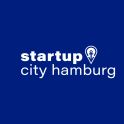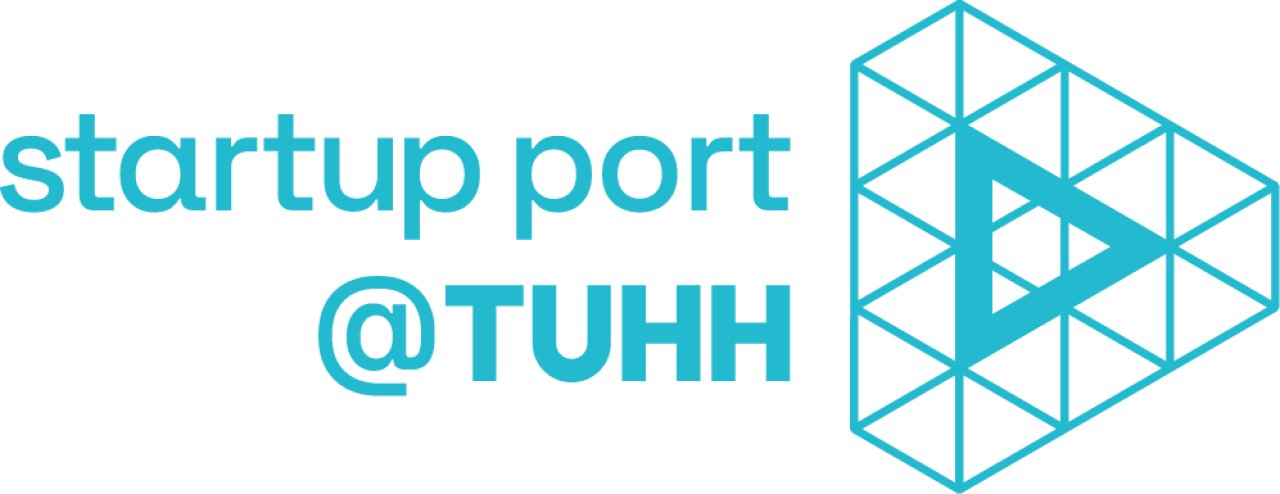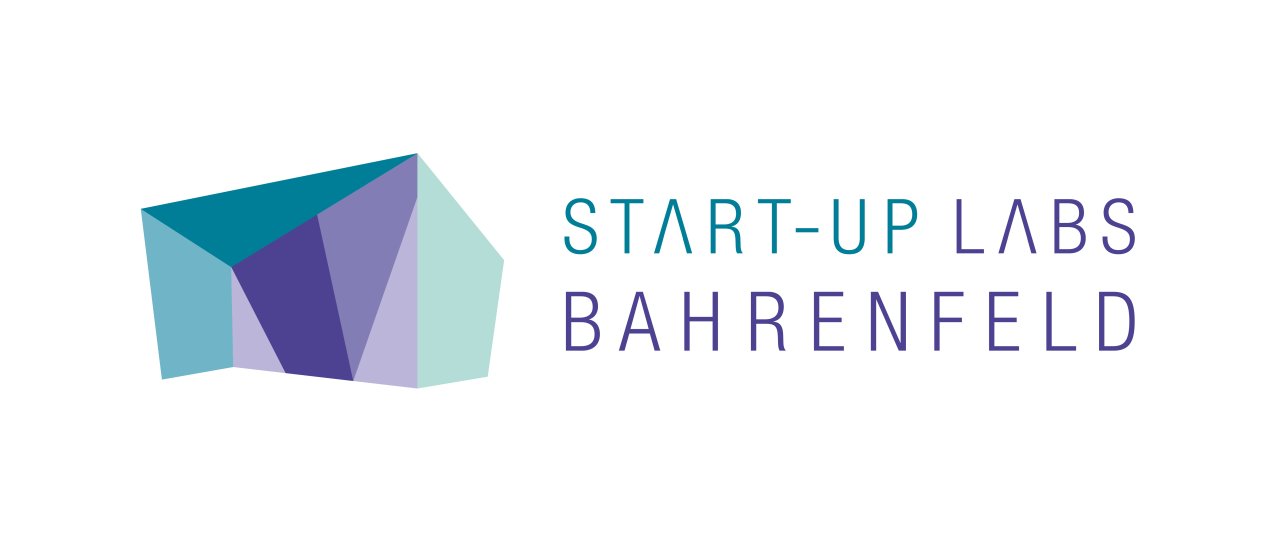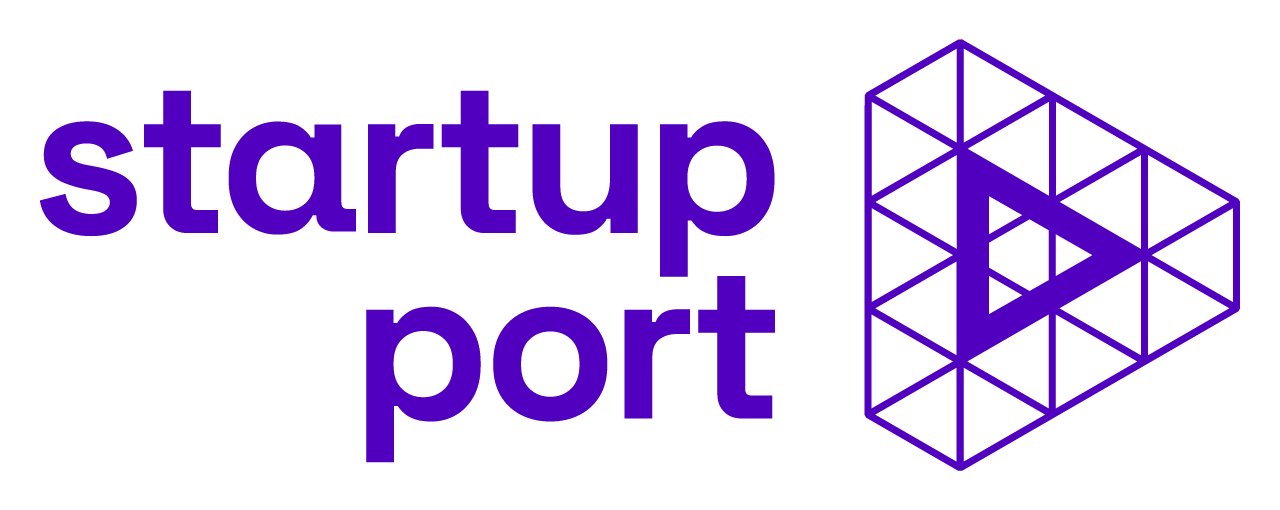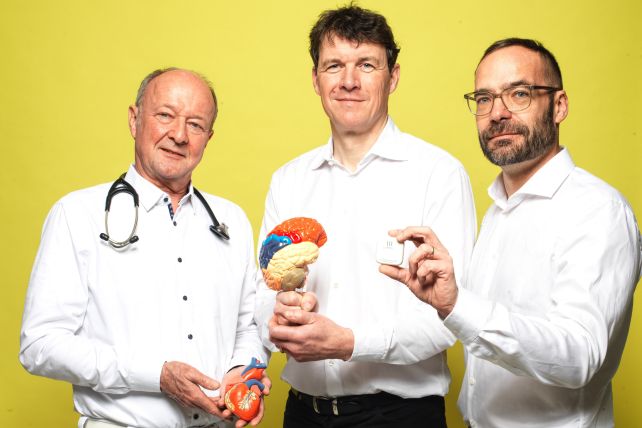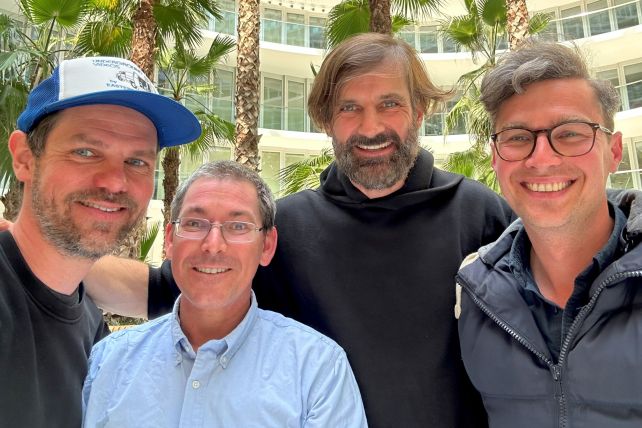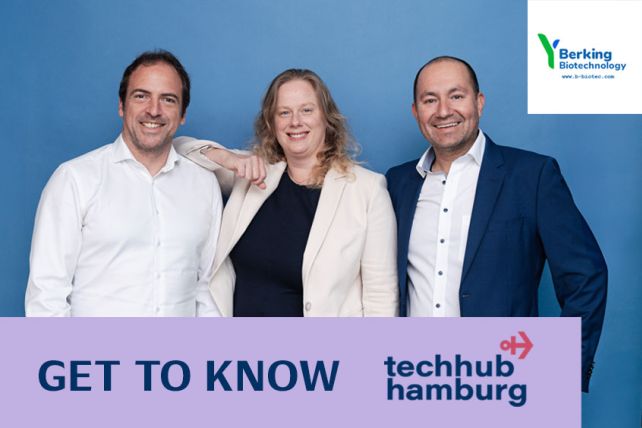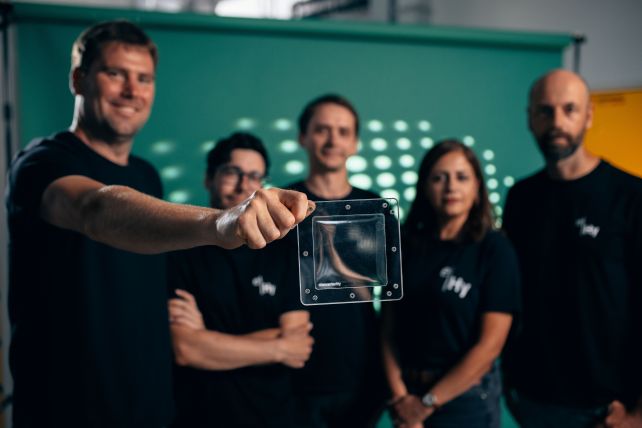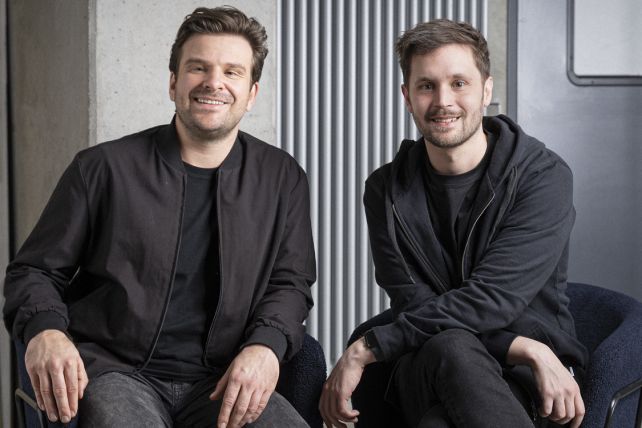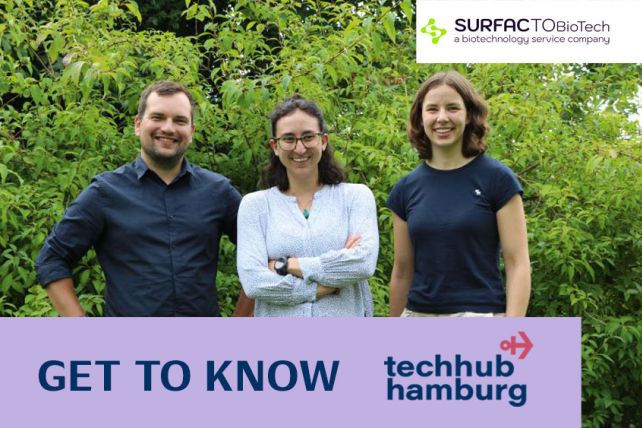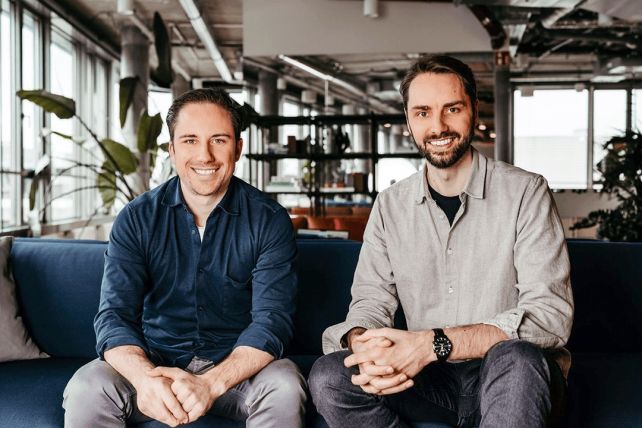Founding a knowledge-based startup from a university comes with many difficulties. It takes longer than an established business model because the product or service in question is absolutely innovative and thus brand new to the market. Many founders need laboratories that are not available in traditional incubators. On top of that, the team of founders consists of academics who often lack commercial expertise.
Dr Dorothea Ringe, Head of the Start-up Office at the Deutsches Elektronen Synchroton (DESY), and Dr Christian Salzmann, Head of "Startup Port @TUHH" at the Hamburg University of Technology (TUHH), are familiar with the hurdles. We asked them about startup support schemes and opportunities for knowledge-based startups from universities:
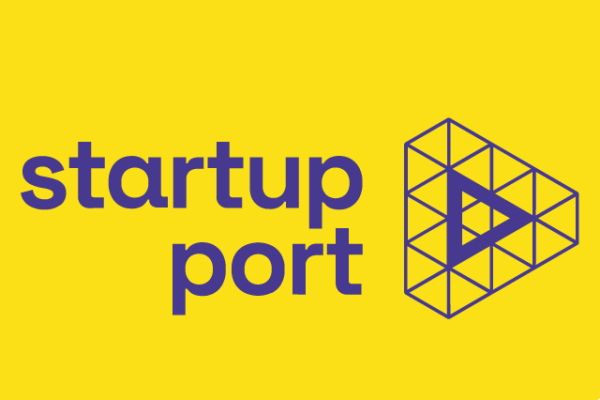
What does the Startup Port do?
Salzmann: The Startup Port’s network links up startup schemes run by associated research institutions and universities in the Hamburg Metropolitan Region as well as the Start-up Offices at DESY and the "Startup Port @TUHH" startup centre at the Hamburg University of Technology. The result is an excellent network in close proximity to science and that offers a comprehensive range of coaching, workshops, support, knowledge transfer and best practice opportunities, especially for founders with science-based business ideas.
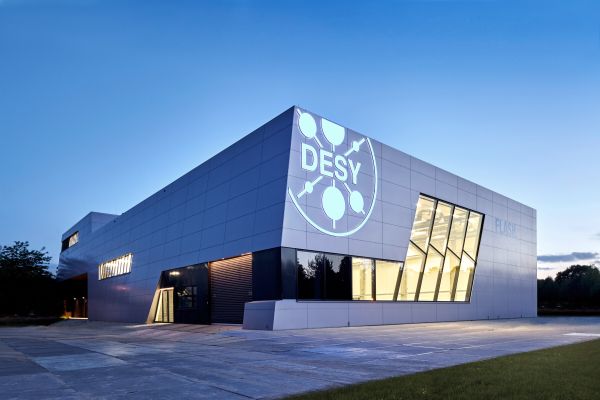
What does the DESY Start-up Office offer?
Ringe: We specialise in supporting startup teams that are technologically suited to the DESY campus and want to set up shop in Hamburg, i.e., primarily in the photonics, life sciences, new materials, electronics, nanotechnology, laser and detector development sectors. As a member of the Startup Port network, we are able to support startups and provide networking opportunities for teams that do not come from DESY, which is very well networked internationally because we are a world leader in basic research into physics.
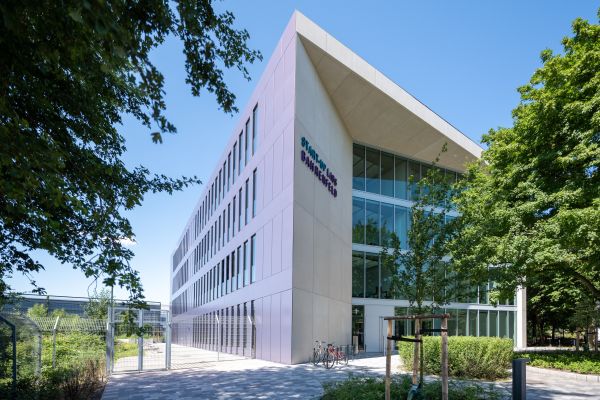
We have very good contacts in the startup ecosystem with mentors, industry, investors and other research institutions. We offer founders in the pre-startup phase co-working spaces with workstations and a makerspace. Once the companies have been founded, the teams can rent space in the Startup Labs Bahrenfeld. We support spin-offs, some of which offer highly complex products that need to be continuously developed in the first years after founding. This requires laboratory space that has to meet very specific requirements: Laser laboratories, for instance, require very thick floors to prevent the building’s vibrations from influencing the measurements. Laboratories in the life sciences sector must of course keep viruses or bacteria indoors and cannot risk a leak. Few laboratories can be rented by startups, as they generally no longer have access to university premises.
What are the biggest challenges facing startups in research and science? Which measures help overcome them?
Ringe: At some point, all startup teams founded in an academic field face the question of acquiring the required entrepreneurial and business expertise. Sooner or later, someone with business knowledge usually joins the team. But regardless of this, scientists who want to set up a company must be able to handle the commercial side of the business. One of our key tasks is to support them. To this end, we have launched a qualification scheme for scientists without a concrete startup idea, but who want to familiarise themselves with entrepreneurial know-how. Investors are keen to ensure that the commercial side of a startup is covered by competent business experience.
Our scheme also includes conducting at least ten customer interviews as this validates the customer problem and enables the teams to gain their first potential clients even before founding the company. Teams of founders should remain in constant contact with their potential customers to develop a product that suits the market and adapts it to customer needs, some of which are international. Of course, our large network helps with this.
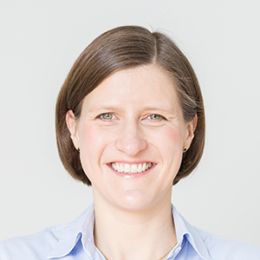
Salzmann: It always depends on what phase the founders are in. At first, it is important to recognise that starting a business is even possible. Then the idea has to become more concrete. Then you need money to survive the first few months, to analyse the business model, develop the product and hone the business idea. Market launch is the next problem, then it's growth and so on. Sometimes, putting the team together can be difficult and some people have problems interacting with each other. The roles, tasks and expectations on each other and the startup must be clarified regularly.
That's why we always urge people to reflect on this in every phase: Am I the stage hog or do I prefer developing things in the background and not talking to strangers at all? What do I expect from others? How do we deal with e.g., a takeover bid? Do we really want to launch the product on the market ourselves or would we rather get rich? These conflicts can be resolved during ongoing talks and by constantly mulling your priorities.
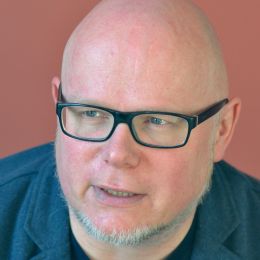
Are the current startup models focusing on any emerging trends, and if so, which ones?
Ringe: There is a very broad range of startup ideas in the deep tech sector. AI is of course playing an increasingly important role.
Salzmann: Here at the Technical University, we receive enquiries from everywhere ranging from process engineering to IT etc. But we do notice that Artificial Intelligence is increasingly becoming a tool for hardware startups. There is also an increasing wish to create something with a positive impact on society or the climate. The spin-off, Traceless, is a very good example as its business model of developing a sustainable, substitute for plastic is based on the founder's doctoral thesis at the TUHH.
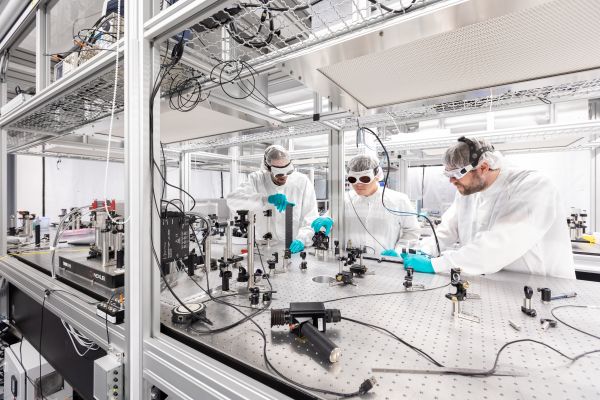
Why is it important to encourage students and researchers to start a business?
Salzmann: Students have two advantages. During their studies, they develop expertise that enables them to solve certain problems that others cannot. Students have specialised knowledge and skills that are exceptional especially in the late Master's degree courses. They also have such an open mind that it is often easier for them to think outside the box and develop new creative ideas.
How could the university environment be changed to produce even more successful startups?
Salzmann: University management is very supportive when it comes to startups, which is not always the case at other universities in Germany. The difficulty, of course, is always the lack of funds. Universities that use funds from their budgets to support startups often face criticism that this is not the core task of a university, which consists of research and teaching. The high cost of startup support is challenging for a university with a tight budget. This dilemma could be solved, if every university had long-term funding and not simply for specific projects, and that could be spent exclusively on startups. Another helpful idea might be for professors to put the issue of entrepreneurship higher on the agenda, encouraging students and researchers to think about developing a possible business model whenever the opportunity arises.

What is the average of founders who seek your help?
Salzmann: The average age of the founders is around late twenties to early thirties because they are either leaving university or are in the early stages of scientific research. Some have already worked for a few years and come to us as alumni with a startup idea. Older female founders currently come mainly through the EXIST Women scheme, which has been in existence since mid-2023 and for which we have awarded ten scholarships. It targets women from universities and research institutions with an idea in the very early stage. This option allows them to focus on their startup idea for several months and receive support as well. These female founders sometimes face challenges rarely faced by their male counterparts due to traditional gender-specific roles such as how to juggle founding a company with looking after a family. Here at the Technical University, we have a big problem finding female founders due to the fact that the proportion of women here is very low.
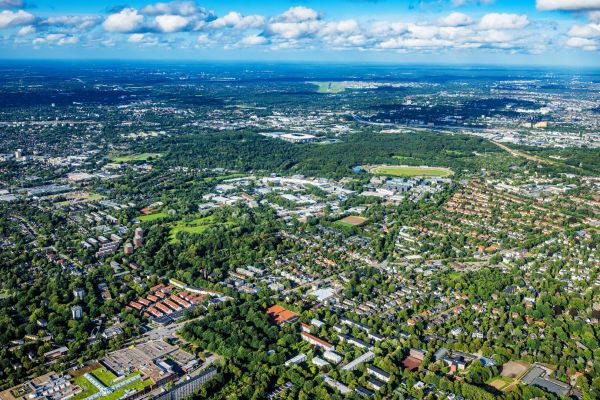
Science City Bahrenfeld is a major, forward-looking project for research in Hamburg: What does this mean for startups and spin-offs from science in the future?
Ringe: For startups in particular, the completion of new buildings and infrastructure will make Science City Bahrenfeld more attractive. The tecHHub is due to open in 2024 and the DESY Innovation Factory is expected to follow in 2027. More research institutes are moving onto the campus, which will lead to a closer living and working environment. We assume that there will be significantly higher demand for support and networking services for the DESY Start-up Office and plan to expand our services accordingly.
What are the plans for the Startup Port network and the DESY Start-up Office?
Ringe: We would like to expand our offers in Science City and extend our collaboration with partners in the startup ecosystem so that the publicly funded offers complement each other. Universität Hamburg, TUHH and DESY are currently working on Hamburg's application for the Startup Factory competition organised by the German Ministry of Economics and Climate Protection. Hamburg has just reached the second round of the competition. The city’s concept focuses on new materials, data science and AI, in which we have a high level of expertise. In cooperation between the partners of the Startup Port network and the Startup Factory, Hamburg will be able to offer fantastic framework conditions for science-based startups. The aim is to establish a Startup Factory with international appeal.
Salzmann: The role of the network is to forge co-operation between the partners and to avoid duplication. This makes work more efficient. Some services such as the Startup Port Lounge or the Startup Port Toolbox work better in the network. At the same time, there is intense interaction and talks in the network to create improved services for founders than if each institution offered individual startup support. It is important to develop needs-orientated services because we work in such a highly dynamic field where needs are constantly evolving. Naturally, we want to meet each other and to give founders the best possible support.
